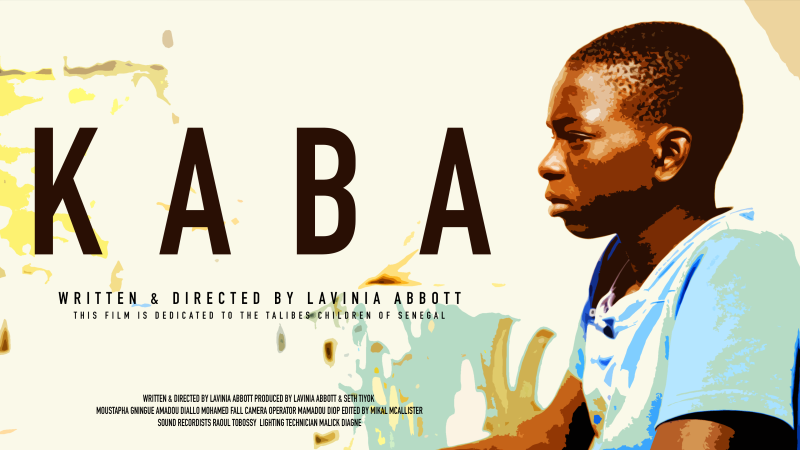THE CONDUCTOR
Martha, a conductor in her 60s, has just been diagnosed with an early onset of dementia. Her world is turned upside down and yet she still finds the courage to perform one final piece with her orchestra.
This film was commissioned by the Utley Foundation which is working towards the goal that everyone living with dementia can access meaningful music as part of their daily care and therapy.
DIRECTOR'S STATEMENT
The idea for this film came about because my own father suffered from dementia and Parkinson's disease for almost ten years before he passed away in 2014. Accepting his illness was difficult for everyone in the family, but most of all for my father himself. In his final years, I remember him feeling often sad and melancholic; he would cry alot and became more and more withdrawn. The only thing however that seemed to lift his spirits was music. My father was a real music-lover and there was always music playing in the house growing up as children. He was a big fan of 50s and 60s jazz music as well as opera. When we played his old songs, his mood changed almost instantly. His face would lighten up, he would break into song and it was as though we had him "back" again. It was then that I realised the powerful effect of music in that it gave us the opportunity to reconnect with him, even just for a brief moment.
I chose to tell the story of Martha, a conductor in her early 60s, because I have always been fascinated by the interaction between a conductor and her orchestra and wanted to explore this relationship through visual storytelling. Also, by choosing to write a script with very little dialogue where Ravel's musical composition 'Bolero' is the dominant theme, I wanted to emphasize the powerful effect music can have on a person living with dementia: Martha's body language and facial expressions are transformed throughout her performance as her story unfolds and she remembers her first true love, Aiguo. The music has momentarily helped her regain a sense of her ‘old’ self. By the end of it, she stands triumphant, as an enthusiastic audience applauds her final performance. Her daughter Elisabeth, who has watched the concert backstage with her brother Henry, has noticed this transformation and exclaims:'Look Henry, look how happy she is! She's on fire!
CONFESSIONS OF A FOREIGNER
Bogdan, also known as 'Steve', is everyone's favourite concierge except John's, a hardened bigot who takes pleasure in targeting Bogdan with racial invective in front of his friends. But when Bogdan/Steve discovers John's long kept secret, the power dynamic shifts dramatically between the two, changing John's life forever. A Brexit-inspired comedy-drama!
KABA
Kaba, a disabled talibé child, reconnects with his passion for football following a series of serendipitous events. This film was shot in Dakar, Senegal.
Please follow this link to view the film: https://www.youtube.com/watch?v=7zy64Eq_C7M

DIRECTOR's STATEMENT
The 'talibés' (talibé refers to a pupil of a Quranic school, called the daara) are a tragic reality of the urban landscape in Dakar, Senegal. Almost everywhere you will see young children, barefoot and clothes in tatters, roaming the streets begging for money and food. These children are forced into the begging system by their religious teachers, known as the 'marabouts'. If they fail to bring back the daily quotas (approximately $3) or if they fail to study or try to escape, they are beaten. This exploitation of children in plain sight is heart breaking and this is what motivated me to make this film. I visited a couple of daaras in St.Louis and was taken aback by the conditions of squalor that these children were living in. I was determined to raise awareness by making this film.
WHAT HAPPENED TO MANFRED
When former Stasi prisoner Manfred encounters his jailer decades later, he wrestles with his morality amid the trauma that befalls him once more. This film was shot in Berlin, Germany.
DIRECTOR's STATEMENT
What Happened to Manfred was inspired by my conversations with former Stasi victims who had experienced the oppression of the GDR system. They were still grappling with their tragic past, unable to make sense of it in a ‘new’ country, which was all too eager to forget the atrocities committed during the Cold War. In spite of their psychological pain, many turned down therapy, as the personal questions reminded them of the relentless interrogation they were subjected to as prisoners.
One former prisoner I spoke to, Hendrik, had been captured at the age of 17 following an attempt to flee to Turkey through the Bulgarian border. He spent 18 months in Hohenschönhausen, where he was interrogated day and night, suffered sleep deprivation and endured long spells of solitary confinement. After being freed by the West German government, Hendrik went to his grand-mother’s house in Berlin, where he was greeted with coffee, cake, and a relative who could not bear to hear about his ordeal.
When the Cold War ended, most Stasi officers, like the jailor who subjected Hendrik to such barbaric treatment, went on to lead normal lives, occupying posts in public office, and going on to have prolific political careers. Their impunity was hard to stomach for many victims of the GDR regime.
This psychodrama explores the brutality of a system which sought to indoctrinate and dehumanise its citizens by criminalizing any form of opposition, fuelling an atmosphere of suspicion, fear and betrayal.